
Featured news
10 Sep 2019
Skin bacteria could save frogs from virus
Ranavirus can wipe out entire common frog populations, but researchers say their latest study could help the species; Frontiers in Microbiology

Featured news
10 Sep 2019
Ranavirus can wipe out entire common frog populations, but researchers say their latest study could help the species; Frontiers in Microbiology
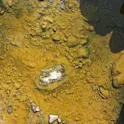
Frontiers news
26 Jul 2019
New specialty on Biology of Archaea now available in Frontiers in Microbiology

Featured news
24 Jul 2019
Most microbes are inside the apple – but the strains depend on which bits you eat, and whether you go organic; Frontiers in Microbiology

Featured news
16 Jul 2019
Researchers have identified a gene mutation in cyanobacteria that creates resistance to free radicals, and could be used to accelerate cell growth in biotech applications; Frontiers in Microbiology

Featured news
26 Jun 2019
Exposure to sucralose and acesulfame-K in the womb and via breastmilk leads to altered intestinal flora and liver toxicity in mouse pups; Frontiers in Microbiology
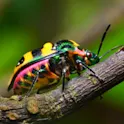
Frontiers news
26 Jun 2019
Professor Takema Fukatsu leads Microbial Symbioses, a new specialty in Frontiers in Microbiology
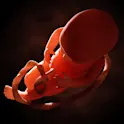
Featured news
05 Jun 2019
Exposure to influential bacteria begins before we are born, new evidence confirms; Frontiers in Microbiology
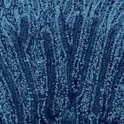
Featured news
18 Apr 2019
Frontiers in Microbiology: A new scientific paper calls for strict adherence to the scientific definition, ensuring improper use of the term doesn’t mislead consumers or limit advancements in the emerging field of microbiome science

Featured news
11 Apr 2019
‘Rewilding’ the urban environment with native microbes could restore the human microbiome and reduce our risk of chronic disease; Frontiers in Microbiology
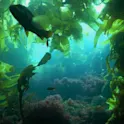
Featured news
10 Apr 2019
Scientists recover dozens of antimicrobial and anticancer compounds from seaweed; Frontiers in Microbiology
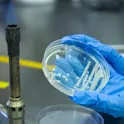
Featured news
01 Apr 2019
Foodborne pathogens in the Bacillus cereus group cause diarrhea and vomiting. Credit: Penn State. — by Penn State University, USA Employing advanced genetic-tracing techniques and sharing the data produced in real time could limit the spread of bacteria — Bacillus cereus — which cause foodborne illness, according to researchers who implemented whole-genome sequencing of a pathogen-outbreak investigation. “Here, in our study, we use this approach for the first time on Bacillus cereus,” said Jasna Kovac, assistant professor of food science, Penn State. “It is our hope that whole-genome sequencing of Bacillus will be done more often as a result of our research, as it allows us to differentiate between the various species of Bacillus cereus group and project the food-safety risk associated with them.” Characterization of Emetic and Diarrheal Bacillus cereusStrains From a 2016 Foodborne Outbreak Using Whole-Genome Sequencing: Addressing the Microbiological, Epidemiological, and Bioinformatic Challenges► Read original article► Download original article (pdf) Done in response to an outbreak of foodborne illness in upstate New York in 2016, the project marked the first time researchers conducted whole-genome sequencing to investigate a Bacillus cereus outbreak to link isolates from human clinical cases to food. The outbreak, which lasted less than a month, stemmed from contaminated refried beans served by a small Mexican […]
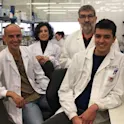
Featured news
29 Mar 2019
This is the research team in charge of the study. From left to right: Ivan Erill, Pilar Cortés, Jordi Barbé and Miquel Sánchez-Osuna. Credit: UAB. — by Autonomous University of Barcelona A team of researchers has discovered a new process capable of generating resistance to synthetic antibacterial drugs within bacterial populations long before they are put to clinical use. The research was led by Jordi Barbé, researcher at the Molecular Microbiology Group of the Universitat Autònoma de Barcelona (UAB), and by Ivan Erill from the Department of Biology at the University of Maryland, Baltimore County (UMBC). The findings were recently published in the journal Frontiers in Microbiology. Researchers analysed the large volume of bacterial genomes available with the aim of identifying the origin of mobile genetic elements carriers of a resistance to sulfonamides frequently detected in the superbacteria found in hospitals. Origin of the Mobile Di-Hydro-Pteroate Synthase Gene Determining Sulfonamide Resistance in Clinical Isolates► Read original article► Download original article (pdf) Through a comparative analysis of sequences and phylogenetic techniques, the researchers were able to establish that sulfonamide-resistant genes appeared in two ground bacteria families (Rhodobiaceae and Leptospiraceae) over 600 million years ago thanks to a mutation in the drug’s target gene. The […]

Featured news
25 Mar 2019
An antimicrobial coating made of precious metals reduced growth of bacteria on contamination-prone surfaces inside the ISS, where extreme conditions can foster antibiotic-resistant superbugs; Frontiers in Microbiology

Featured news
18 Mar 2019
The stress of spaceflight gives viruses a holiday from immune surveillance, putting future deep-space missions in jeopardy; Frontiers in Microbiology
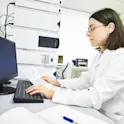
Frontiers news
11 Mar 2019
Join the Frontiers in Microbiology Editorial Board as an Associate Editor or Review Editor
Get the latest research updates, subscribe to our newsletter